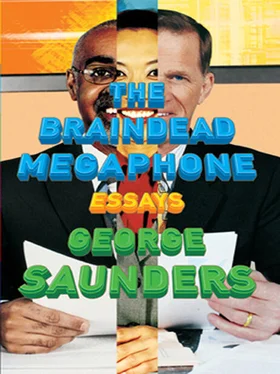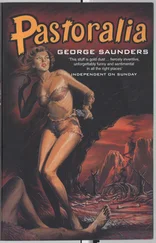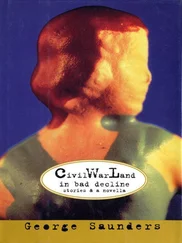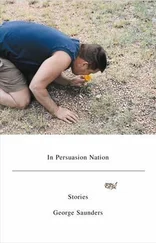My heart goes out to him.
Sort of.
Because empathy depends on how you’ve spent your day. I’ve just spent mine driving around in a “marked caged unit” with Agent Three, aka Dan Garibay: visiting the muddy clearings where illegal aliens change into dry clothes after they cross, inspecting fence-cuts, driving past safe houses, hearing agents talk about tracking groups of illegals for eleven straight hours. I’ve learned that it’s now more profitable to traffic in humans than in drugs; that MS-13, a Salvadoran gang, is in a death struggle with the more traditional Mexican Mafia; that Border Patrol agents in Laredo are routinely shadowed by spies from the smuggling cartels who, in turn, are shadowed by a newly formed countersurveillance unit.
My relation to this Mexican kid, then, is something like that of a plumber’s apprentice to a leak.
Dan’s third-generation Mexican American, a funny, reasonable guy who seems to be constantly considering and reconsidering the moral implications of his job. He’s got nothing against illegal aliens, understands why they do what they do, has compassionate feelings toward them, and seems committed to catching them in a way that keeps them safe and leaves their dignity intact. But the law is the law, and why should those who break the law be privileged over those who’ve played by the rules?
So I find myself thinking, re this silent (sullen? unrepentant?) kid, this member of Wascals Who Insist on Trying to Elude My New Friend Dan : Dude, what did you expect? Seven times? Who doesn’t learn after seven times? Do you value your freedom so lightly? Do you have a wife, kids? Do you realize you are now going to miss the next three months of their—
Then, imagining that he has kids, who look like little Mexican versions of my kids back when they were toddlers, I (finally) experience a little heart-pang as I flash on what I’d be thinking if I were him: Laugh it up, you balding bastards, I’m dying here, can’t you tell I’m a decent person, oh Jesus, please let me go, just this one last time, they’re so cute and will never be this age again, please please, I’ve made a terrible mistake.
And what will you do if we let you go? I ask him in my mind. Will you try to get in here again? Next time, you could be looking at five years.
He hesitates, averts his eyes.
Seriously? I say. My God, is it worth it? Are things really that bad where you live?
And he just looks at me, as if to say: Would I keep trying if it didn’t make sense to keep trying, if the possible reward didn’t justify possibly getting caught? Do I look stupid?
He doesn’t look stupid. He looks handsome and sad and ashamed.
But mostly what he looks is: busted.
Busted, and waiting to pay the price.
HUSTLING FOR SCHOOLBOOKS
I cross the bridge into Nuevo Laredo (“the most dangerous city in North America,” according to Dan) with an African American long-haul truck driver from Kentucky who’s wearing a cowboy hat and a shirt with a flag sewn on the back. For thirteen years now, whenever he drives this route, he’s parked on the U.S. side and saved a few bucks by getting a cheap hotel on the Mexican side. He’s divorced, but his wife’s a good lady: She’s kept him on her insurance, she’s a nurse, a good nurse, not a slut like most nurses, who like to fuck the young doctors in the rooms where they keep the towels. Do I know about this? Am I aware of this phenomenon?
In the most dangerous city in North America, a guy’s getting his shoes shined with an air of 1950s satisfaction, a row of old people are fingering their pants legs on a bench, a toddler’s doing a happy skipping dance along the lip of a fountain.
Not so bad, I think, a town like any other—
Do I want a girl? A boy? A boy from Boy’s Town?
A young guy’s fallen in beside me: Hector.
“No, man, I’m married,” I say. “Happily married.”
“Isn’t it the case!” he says. “When a man goes with another woman, the wife will give him such a…how is it called?”
He mimes slapping himself.
“Slap,” I say.
“Your woman will gave you such a slop,” he says, shaking his head at the memory of the last time his wife gave him a slop.
Hector advises me: Stay in the shopping area. Do not err to the left or right of the bridge. Avoid the police. Two gangs are fighting for the town, each with its own cops. The cops see you have money, they’ll plant drugs on you, take your money, possibly kill you.
Times are hard, he tells me, fewer tourists are coming all the time. His daughter just started first grade, but they haven’t been able to afford the books yet. He didn’t see his family last night, not having the five bucks necessary for the bus ticket to León.
I give him ten bucks.
He accepts with surprise, gratitude, some disappointment maybe: It’s too little money, too early in the night.
He tells me nostalgically about the first time he sneaked into the United States, with his uncle, in 1989, in a little boat. His dream is to go over again soon and join his brother in New Orleans, making fifteen dollars an hour doing post-Katrina work. He knows about the location of the new checkpoint, on Highway 83, which I visited with Dan earlier today, and how to circumvent it: Get dropped off before the checkpoint, walk a couple of miles around it, get picked up on the other side.
“Not easy,” I say.
“Yes, easy,” he says.
And even easier if he had an American to help him. Do I have a car? Is my car parked in Laredo? If I drive him through the checkpoint, they won’t even stop us.
Ha, ha, ha! I think. Hi, Dan! I can explain!
A muscular scowling guy, face heavily tattooed, strolls past, with henchmen. Hector, distracted/alarmed, trips on an exposed pipe.
“He doesn’t like me,” he says. “Because I am with you, in his area.”
His area ? I think. The street comes alive with creepiness. This is the town that killed its own police chief, on his first day in Office, for pledging to end the drug trade.
“I should probably head back,” I say.
“I think so,” says Hector.
Soon the bridge is in sight. Suddenly, he’s nervous, abashed.
Maybe I could give him a little something?
I remind him of the ten dollars.
“That was for my children,” he says. “I am asking now for me. So I can buy a hot dog.”
Over the next few seconds I (1) am annoyed at his nerve, (2) castigate myself for being so tight-sphinctered over — what is it, two bucks? — and (3) hand over the money, smiling warmly to hide the fact that (1) and (2) ever occurred to me.
Hector steps away, buys a hot dog from a vendor, disappears down a side street, raising the hot dog in gratitude.
I cross the bridge.
Easy for me, I think. Impossible for you.
Back in the United States, the facades are nicer, the traffic lighter. My nation appears in that moment as a very clean, anxiety-clenched fist, in the grip of which I feel comfortable and happy, and like myself again.
THE ALL-AMERICAN MEXICAN CITY, OR THE ALL-MEXICAN AMERICAN CITY, WHATEVER
Maybe you’ve heard some variant of the following:
I have nothing against [Mexicans/immigrants/these people], but nowadays you go to [NAME OF CITY] and all you hear is Spanish. It’s as if [these people/the Mexicans/ the foreigners] expect [me/us Americans] to [speak Spanish/adapt to THEIR culture/kowtow to THEM!], whereas the burden ought to be on [them/the newcomers/the Mexicans] to ASSIMILATE, right? Someday soon you’re going to find whole American cities full of people speaking only Spanish!
Note to speaker of the above: such a city already exists. Welcome to the Friday-night party that is Laredo.
Читать дальше












